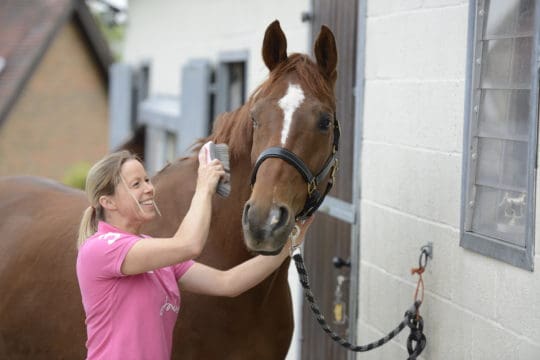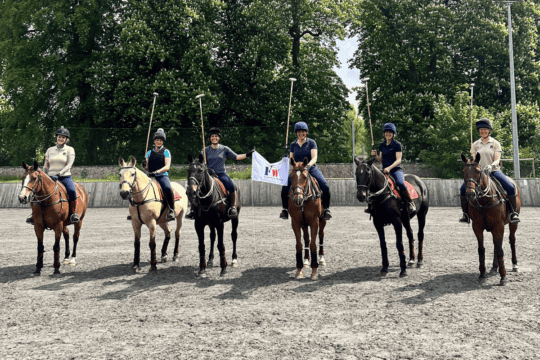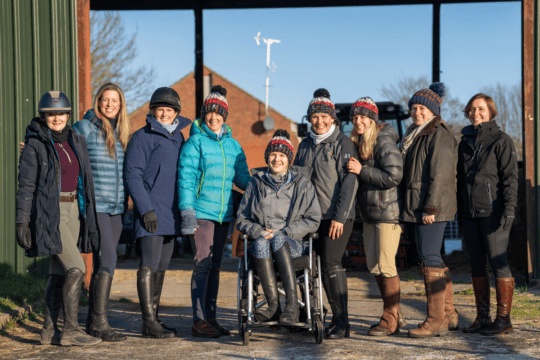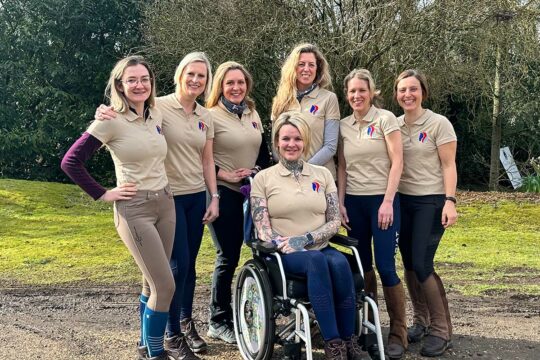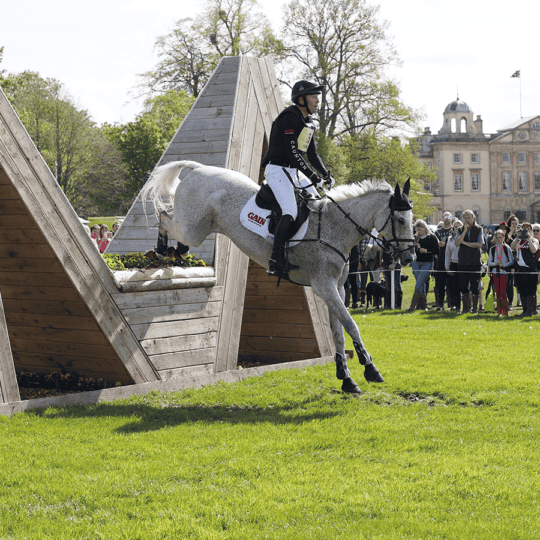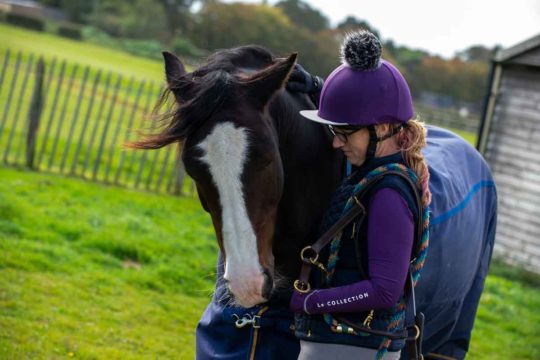
Most Read Articles
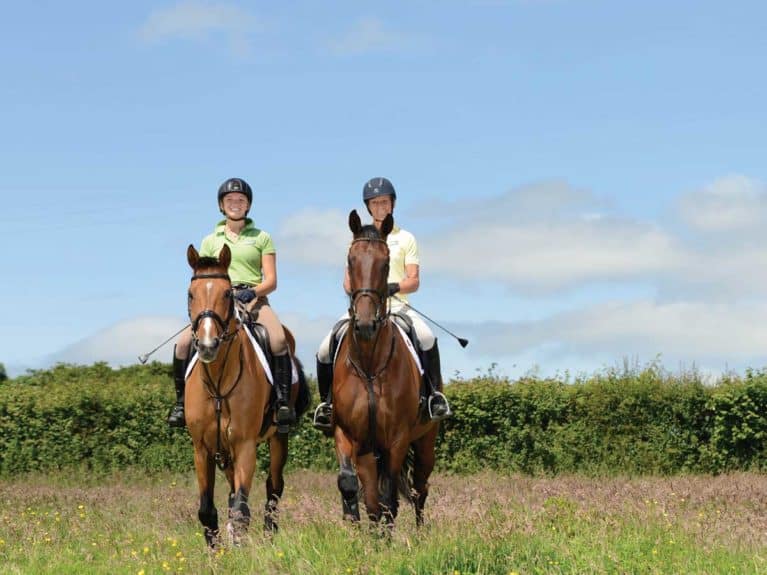
What does a typical day look like for one of eventing’s rising stars? Emily gives us a sneak peek into her jam-packed diary
6.30am – On a day at home – which is quite rare! – I feed the horses myself. All my horses live in, so I give them a hard feed and their morning hay.
7am – Have breakfast myself.
7.30am – The girls arrive to start mucking out. I get my first horse ready and start riding at 7.45. I always make a concrete plan the day before of what each horse will be doing, so the girls get my next horse ready while I’m finishing up with the first.
I ride a maximum of six or seven horses a day, as I have up to eight horses in work at any given time. We aim to get them all worked in the morning so that they can spend a few hours out in the field afterwards.
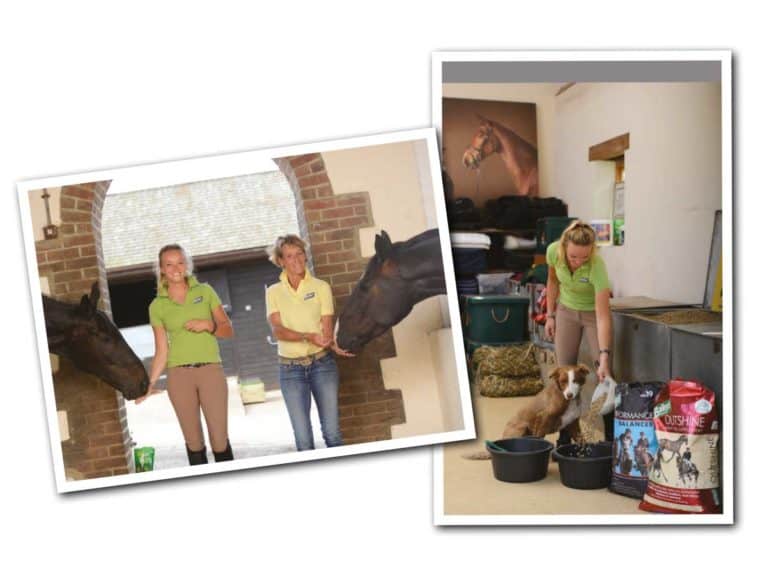
1pm – Lunchtime! The girls give the horses their lunch and skip them out.
2.30pm – In the afternoon, I liaise with my owners and sponsors to make plans – this can take up rather a lot of time! Then I do paperwork and entries, and often have lessons to teach as well. If not, I’ll go to the gym or for a run.
4.45pm – The girls do one last skip out and top up hay and water before they finish at 5.
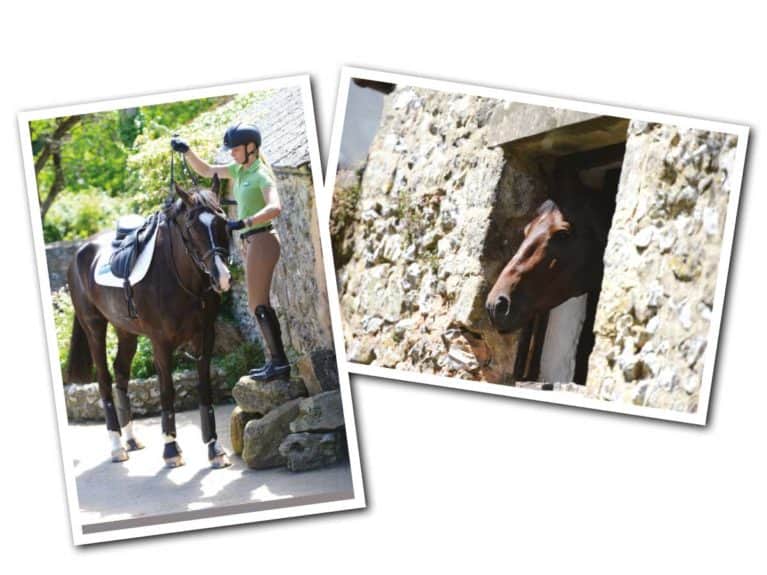
6pm – I head out to do the horses’ final evening feed. I like to do the morning and evening feeds myself, as it gives me a chance to check their legs and get an idea of what’s normal for each horse. For event horses especially, it’s really important to keep a close eye on tendons and to know how each horse’s legs react after a competition. Some tend to be more filled, and once you know that you can worry less and deal with it accordingly. Others have stone-cold legs, which makes it easy to find any uncharacteristic warmth. When you know each horse that well, you can react straightaway if there’s a change.
9pm – If the temperature drops considerably at night, I come out later on to adjust the horses’ rugs. If I’ve got new horses or horses who have come back from an event abroad, I check them through the night to make sure they’ve settled well and aren’t suffering any adverse effects from travelling. Otherwise, I leave the horses to rest after they’ve had their dinner.

